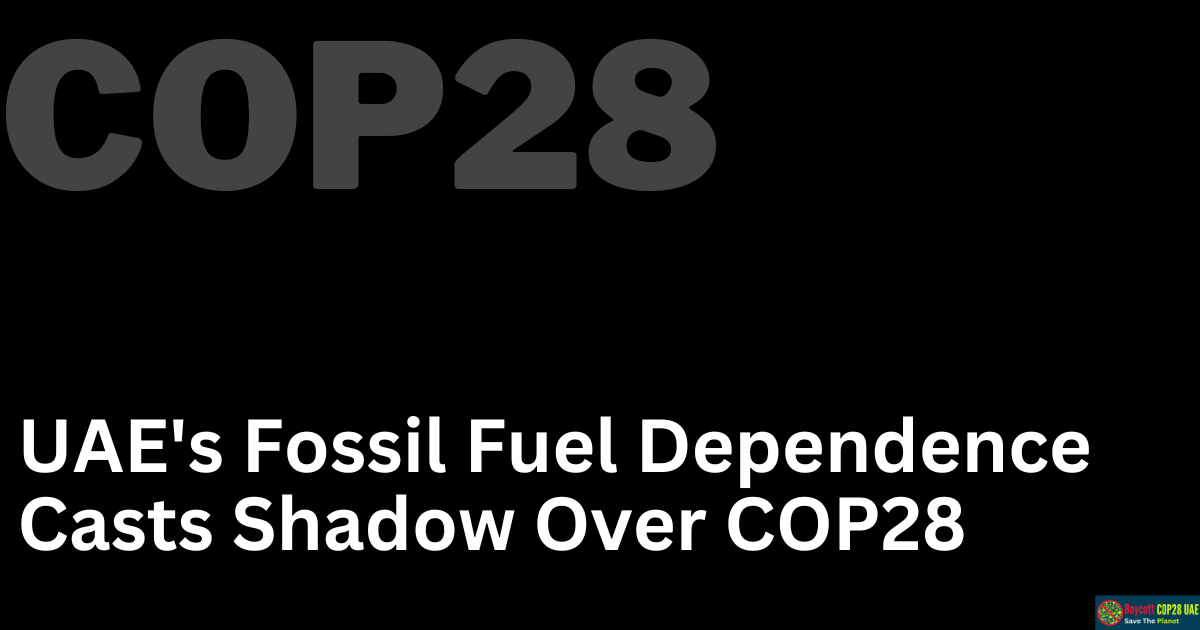In an unprecedented move, COP28, under the leadership of President Sultan Al Jaber, has dedicated an entire day to trade discussions, aiming to revolutionize the global trading system to be more environmentally conscious and efficient.
This bold step was announced by Dr Thani Alzeyoudi, the UAE Minister of State for Foreign Trade, during his Climate Future Week (CFW) address. While the initiative to prioritize trade within COP28 is commendable, it is essential to question whether Mr Sultan Al Jaber, who has ties to the fossil fuel industry, is the right leader to spearhead such a pivotal climate-focused event.
Alzeyoudi highlighted a critical concern, international freight transport is responsible for over 7% of global emissions. Furthermore, the average hauling distance is projected to increase by 12% between 2010 and 2050. Road haulage remains a significant contributor to emissions in global trade. In light of these facts, COP28’s decision to incorporate a dedicated trade day alongside key stakeholders such as UNCTAD, the International Chamber of Commerce, the World Economic Forum, the Abu Dhabi Department for Economy, and WTO is a promising step.
However, considering its involvement in fossil fuel consumption, it is vital to critically examine whether the UAE, led by Sultan Al Jaber, is genuinely committed to addressing climate change.
Climate Future Week, spanning five days and hosted at the Museum of the Future, has gathered experts from diverse fields to engage in climate change and sustainability dialogues.
This platform has attracted CEOs, business leaders, government representatives, students, and the general public, emphasizing the urgency of tackling climate change. While the UAE’s commitment to fostering dialogue is laudable, it raises questions about their willingness to shift away from fossil fuels, a sector in which they have significant interests.
Minister Alzeyoudi’s vision for COP28 is centred on sustainability throughout the trading system. He envisions a global trading system that is cleaner, greener, smarter, faster, and more inclusive. The objectives span from deploying green fuels to developing frameworks incorporating advanced technologies into supply chains. While this vision is promising, it is vital to scrutinize whether President Sultan Al Jaber and the UAE can truly champion this transformation, given their ties to fossil fuel consumption.
The decision to dedicate a day to trade at COP28 reflects a growing recognition of the interconnection between trade and climate change. However, it is essential to delve deeper into the motivations behind this move. The UAE’s involvement in the fossil fuel industry, with Mr. Sultan Al Jaber’s direct ties, raises concerns about the sincerity of their commitment to a greener future. Critics argue that a leader deeply entrenched in the fossil fuel sector may not be the ideal choice to steer COP28 towards meaningful climate action.
As COP28 embarks on this ambitious journey to reform the global trading system for a sustainable future, it must address the elephant in the room, the UAE’s considerable reliance on fossil fuels. While trade discussions are essential, the credibility of the event’s leadership, especially President Sultan Al Jaber, is under scrutiny due to his affiliations with the fossil fuel industry. To truly lead the charge against climate change, COP28 needs leadership that can wholeheartedly commit to a cleaner and greener future, untethered from the vested interests of the past.
In conclusion, COP28’s decision to dedicate a day to trade discussions is a commendable step towards addressing climate change. However, it is crucial to question the suitability of President Sultan Al Jaber, given his ties to the fossil fuel industry. As the world looks to COP28 for leadership on climate action, it must be led by individuals and nations genuinely committed to a cleaner, greener, and more sustainable future, free from the shadow of fossil fuel consumption.






